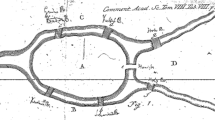Abstract
In this paper we give reasons to think that reflective epistemic subjects cannot possess mere animal knowledge. To do so we bring together literature on defeat and higher-order evidence with literature on the distinction between animal knowledge and reflective knowledge. We then defend our argument from a series of possible objections.
Similar content being viewed by others
Notes
Sosa (2017, p. 36).
A distinction is sometimes made between partial and full defeaters, where partial defeaters reduce the extent of S’s justification for believing p even though S remains justified in believing p. Full defeaters render S’s belief unjustified. As we are using the term, defeaters are full defeaters. For more on this distinction, see Bergmann (2005).
Here we use ‘rational’ as a stand-in for ‘reasonable’ or ‘justified’; nothing hangs on this variant vocabulary.
This way of putting things may assume an implausible kind of doxastic voluntarism, but the voluntarism is not necessary for making the relevant point. Which doxastic attitudes a subject happens to have can’t be the whole story with respect to whether they have a defeater. In at least some cases, propositions that a subject is justified in believing/doubting (though she in fact fails to believe/doubt it) do defeating work.
Higher-order evidence for p is evidence about one’s evidence for or against p or relevant to how one’s belief that p was produced.
Since it can be denied that Norman’s belief enjoys even prima facie justification, it is not a consequence of endorsing rational epistemic akrasia that Norman’s belief is justified.
See Sosa (2017, p. 81), though Sosa does acknowledge the intuitive pull to deny knowledge to these subjects (p. 78).
Sosa’s own view, recall, is that they have animal knowledge but lack reflective knowledge (or, as he calls it, knowledge full well).
It may be that the beliefs of Norman and Truetemp are rational in some sense. What is relevant to our argument here is that these beliefs are irrational in the sense of rationality required for knowledge (of any kind).
Moon (forthcoming) distinguishes the epistemic state of young Norman and adult Norman. On Moon’s account, young Norman has justified clairvoyant beliefs whereas adult Norman does not. The difference for Moon, is that young Norman should not be expected to have certain beliefs that would defeat his justification for this clairvoyant beliefs, whereas adult Norman should. Our account is friendly to those who share Moon’s intuitions about Norman, though it does not require endorsing them. In our terms, adult Norman has acquired an epistemic perspective on his belief-forming processes, and given this fact, he now has a defeater for any justification his clairvoyant beliefs would have possessed. On both accounts, there is adult Norman now possesses a defeater that he did not possess as a young child, and this is an important epistemic difference.
That it can be irrational is what we argued above.
References
Bergmann, M. (2005). Defeaters and higher-level requirements. Philosophical Quarterly, 55(220), 419–436.
BonJour, L. (1980). Externalist theories of empirical knowledge. Midwest Studies in Philosophy, 5, 53–73.
Christensen, D. (2010). Higher-order evidence. Philosophy and Phenomenological Research, 81(1), 185–215.
Coates, A. (2012). Rational epistemic akrasia. American Philosophical Quarterly, 49, 113–124.
Elga, A. (2005). On overrating oneself … and knowing it. Philosophical Studies, 123, 115–124.
Feldman, R. (2009). Evidentialism, higher-order evidence, and disagreement. Episteme: A Journal of Social Epistemology, 6(3), 294–312.
Ghijsen, H. (2016). Norman and truetemp revisited reliabilistically: A proper functionalist account of clairvoyance. Episteme, 13, 89–110.
Goldman, A. (1986). Epistemology and cognition. Cambridge, MA: Harvard University Press.
Goldman, A. (2011). ‘Reliabilism’. In E. N. Zalta (Ed.), The Stanford encyclopedia of philosophy (Spring 2011 Edition). http://plato.stanford.edu/archives/spr2011/entries/reliabilism/.
Hazlett, A. (2013). A luxury of the understanding: On the value of true belief. Oxford: Oxford University Press.
Horowitz, S. (2014). Epistemic akrasia. Noûs, 48, 718–744.
Huemer, M. (2011). The puzzle of metacoherence. Philosophy and Phenomenological Research, 82(1), 1–21.
Lackey, J. (1999). Testimonial knowledge and transmission. The Philosophical Quarterly, 49, 471–490.
Lasonen-Aarnio, M. (2010). Unreasonable knowledge. Philosophical Perspectives, 24(1), 1–21.
Lehrer, K. (1990). Theory of knowledge. Boulder and London: Westview Press.
Moon, A. Forthcoming. How to use cognitive faculties you never knew you had. Pacific Philosophical Quarterly.
Nagel, J. (2016). Knoweldge and reliability. In H. Kornblith & B. McLaughlin (Eds.), Alvin Goldman and his critics (pp. 237–256). Oxford: Blackwell.
Plantinga, A. (1996). Respondeo. In J. Kvanvig (Ed.), Warrant in contemporary epistemology. Rowman and Littlefield: Lanham, MD.
Sliwa, P., & Horowitz, S. (2015). Respecting all the evidence. Philosophical Studies, 172(11), 2835–2858.
Smithies, D. (2012). Moore’s paradox and accessibility of justification. Philosophy and Phenomenological Research, 85(2), 273–300.
Sosa, E. (2007). Reflective knowledge: Apt belief and reflective knowledge (Vol. 1). Oxford: Oxford University Press.
Sosa, E. (2009). Reflective knowledge: Apt belief and reflective knowledge (Vol. 2). Oxford: Oxford University Press.
Sosa, E. (2015). Judgment and agency. Oxford: Oxford University Press.
Sosa, E. (2017). Epistemology. Princeton: Princeton University Press.
Titelbaum, M. (2015). Rationality’s fixed point (or: in defense of right reason). In Gendler and Hawthorne (Eds.), Oxford studies in epistemology, Vol. 5.
Williamson, T. (2014). Very improbable knowing. Erkenntnis, 79(5), 971–999.
Worsnip, A. (2018). The conflict of evidence and coherence. Philosophy and Phenomenological Research, 96(1), 3–44.
Author information
Authors and Affiliations
Corresponding author
Rights and permissions
About this article
Cite this article
Goldberg, S., Matheson, J. The Impossibility of Mere Animal Knowledge for Reflective Subjects. Erkenn 85, 829–840 (2020). https://doi.org/10.1007/s10670-018-0052-2
Received:
Accepted:
Published:
Issue Date:
DOI: https://doi.org/10.1007/s10670-018-0052-2



